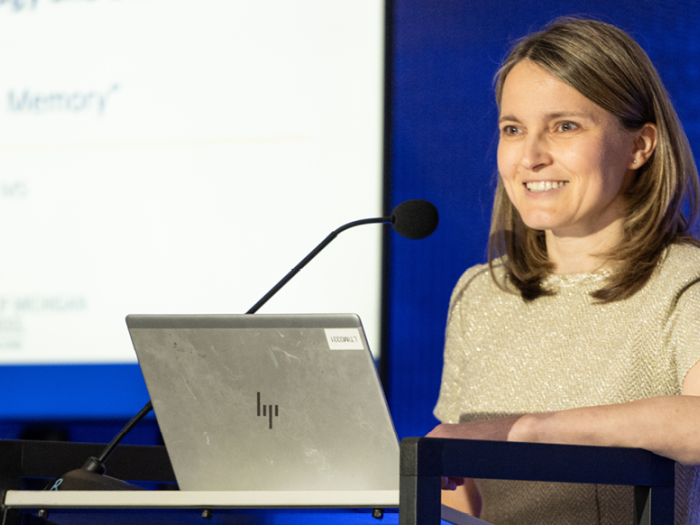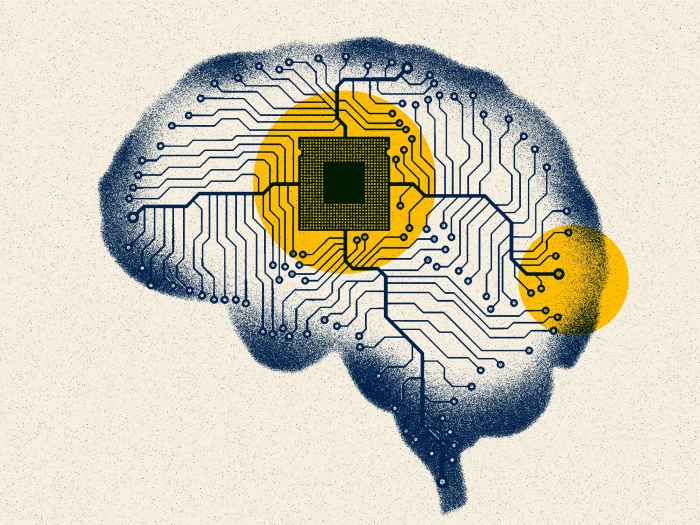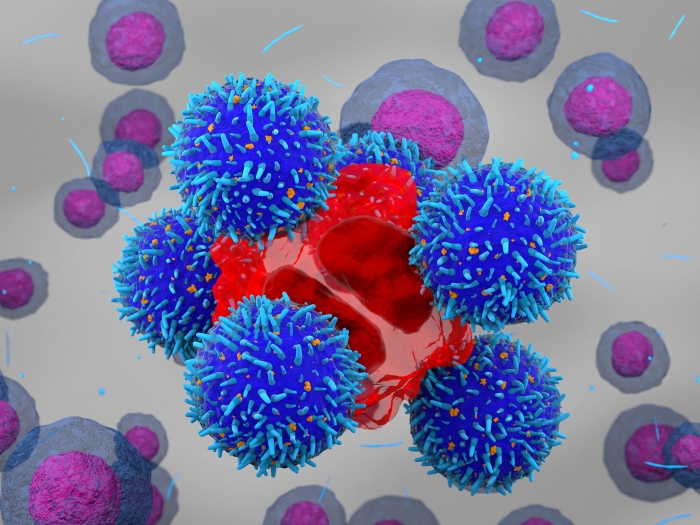
Friday, July 14th, 2023, Krishnan will defend her PhD dissertation titled "Mapping the (un)Known: Spatially-driven Frameworks for Characterisation of Heterogeneity in the Tumor Microenvironment."
Santhoshi Krishnan is passionate about combining different computational methods for cell spatial mapping and analysis. In her current research, she applies three different computational approaches to study the interactions between tumor cells and immune cells in pancreatic diseases. The main hypothesis is that understanding individual cell locations and the interactions between each cell is helpful to establish a diagnosis and to predict how well a treatment will succeed. Eventually, Krishnan hopes to package these computational diagnostic tools for use in the clinic.
“I find combining different computational methods really powerful and exciting,” she said. “In my dissertation, the proposed methods move away from single-number summaries and provide a more comprehensive representation of the state of the microenvironment.”
The first method that she uses is borrowed from spatial analysis techniques for biodiversity and ecology studies (Geographic Information Systems - GIS) where each element of a system is localized and considered in interaction with others. The other method repurposes an already-existing discriminative feature-based dictionary learning method to identify sub-regions of the tumor microenvironment representative of the disease. The third method is quite novel and focuses on the cell-cell interaction patterns, recognizing them as unique to each disease. Initial studies show that her framework is able to highly discriminate between Pancreatic Ductal Adenocarcinoma and non-cancerous chronic pancreatitis which is challenging for pathologists to discern based on the arrangement and structure of the cells under the microscope. For this research, Krishnan has collaborated with various physicians, including pathologists and surgeons.
Her scientific interest stems from her upbringing with her mother being a physician and her father an engineer. She recalls how as a child, she would discuss patient cases with her mother, and those conversations drew her to the medical field. With biomedical engineering, she combines the expertise from both her parents.
Krishnan is an international scholar who grew up in Oman in the Middle East, and studied undergraduate Electrical and Computer Engineering at SRM Institute of Science and Technology in India. She moved to the U.S. to attend graduate school and received her M.S. from Rice University in Houston, Texas. This is where she met her mentor, Arvind Rao. As he took a position in DCMB, Krishnan decided to continue her research at U-M under his guidance while still enrolled as a student at Rice University. She feels that she got the best of both worlds and is very grateful for the administrative arrangement that allows her to keep receiving Dr. Rao’s mentorship. Upon graduating, she will continue her work as a postdoctoral fellow in his lab.
After her postdoctoral year, Krishnan is considering moving into the industry to apply some of her learned skills in discovering novel biomarkers and relationships to quantify cancer treatment effectiveness, contributing to the drug development process from bench to bedside.
Outside the lab, Krishnan can be found running trails and practicing yoga. She also loves baking, reading, and singing.
Krishnan will defend her Ph.D. dissertation Friday, July 14th, 2023. The title of her dissertation is "Mapping the (un)Known: Spatially-driven Frameworks for Characterisation of Heterogeneity in the Tumor Microenvironment"
Congratulations, Santhoshi!





